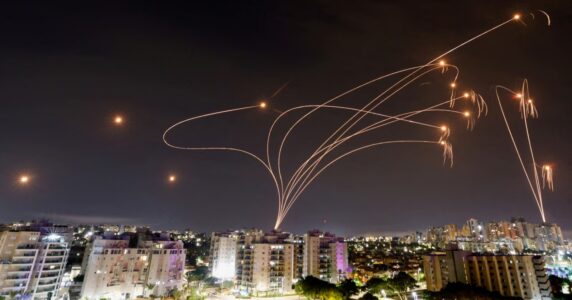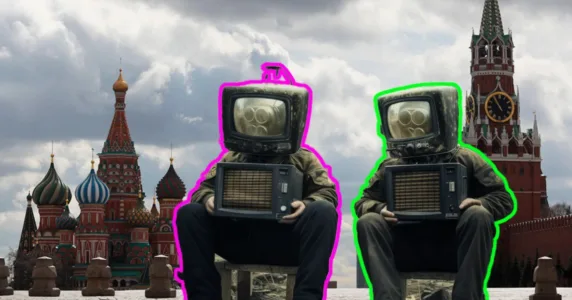Navigation and useful materials
On Thursday, October 13, an 11-year-old boy died in the Mykolaiv hospital. He became the sixth victim of another strike by the Russians on one of the city’s multi-storey buildings. The child spent six hours under the rubble of a house destroyed by a Russian S-300 missile.
The boy from Mykolaiv was far from the first Ukrainian to be killed by the Russians in their own home. Regular missile and artillery strikes on civilian targets are tactics that Rashist forces have resorted to since February 24.
The same sad fate awaited Borys Romanchenko, a 96-year-old prisoner of the Nazi concentration camp Buchenwald. The death of a veteran in his Kharkiv flat from a Russian missile showed what Putin’s “denazification” really looked like.
As of early September, law enforcement officers counted at least 7,000 civilians who died from Russian shelling. These figures were announced before the discovery of mass graves in the de-occupied areas of the Kharkiv oblast. Obviously, all the victims of the barbaric siege of Mariupol are neither taken into account.
The beginning of Putin’s rule in Russia was marked by night explosions of residential buildings in Buynaksk, Moscow, and Volgodonsk. Then photos with collapsed risers and reports of the death of entire families while sleeping shocked the whole world. And they gave Putin a free hand to start the Second Chechen War. Today, the Russian aggressor openly does the same with Ukrainians in Borodianka, Odesa, Zaporizhzhia… Footage of the terrible destruction in the Kharkiv residential district of Pivnichna Saltivka is not much different from the Russian footage that shook the world in the autumn of 1999.
The Centre for Strategic Communication and Information Security recalls the most resonant cases of targeted strikes on residential buildings in the cities of Ukraine.
Borodianka (Kyiv Oblast)
Borodianka is the most destroyed settlement of the Kyiv region. During the fighting in March, the occupiers dropped missiles and bombs on the residential sector right in the centre of the village. Thus, 8 multi-storey buildings were destroyed, and another 32 houses suffered significant damage. After the de-occupation, Ukrainian rescuers retrieved the bodies of 41 people from under the rubble.
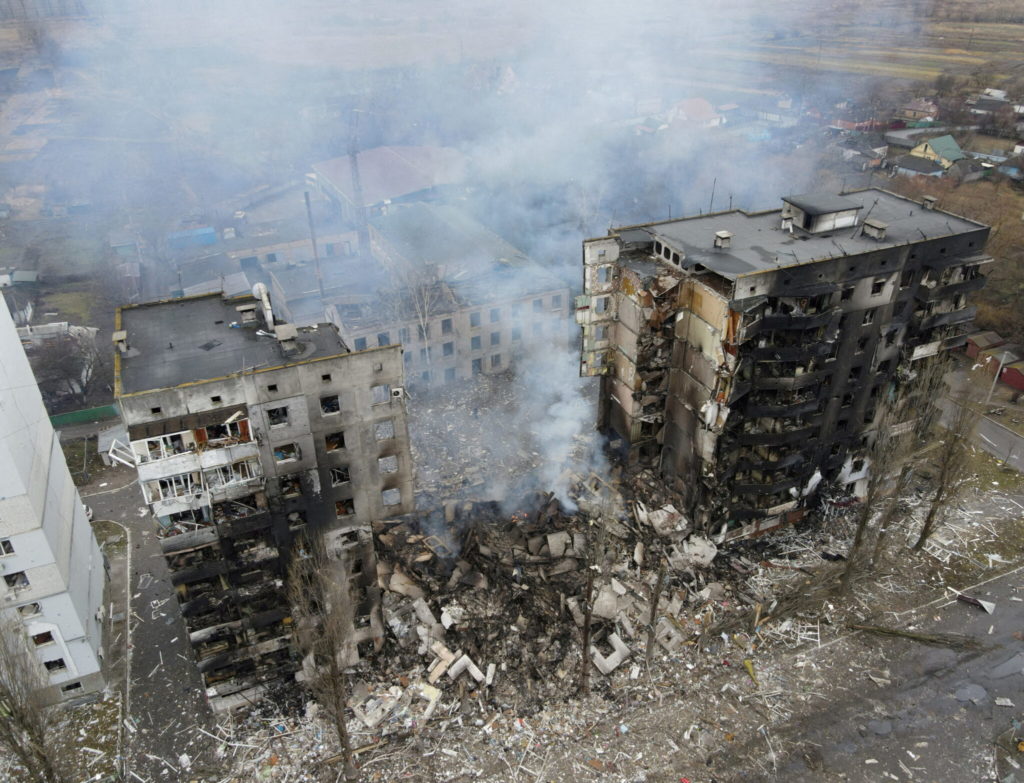
The visual symbol of these destructions was the house at 359 Tsentralna Street.
Izium (Kharkiv Oblast)
In early March, during the battles for the city, the Russians dropped an air bomb on a five-storey building on Pervomaiska Street, and then aimed the house with a tank. At least 44 people who were hiding in the basement died under the rubble.
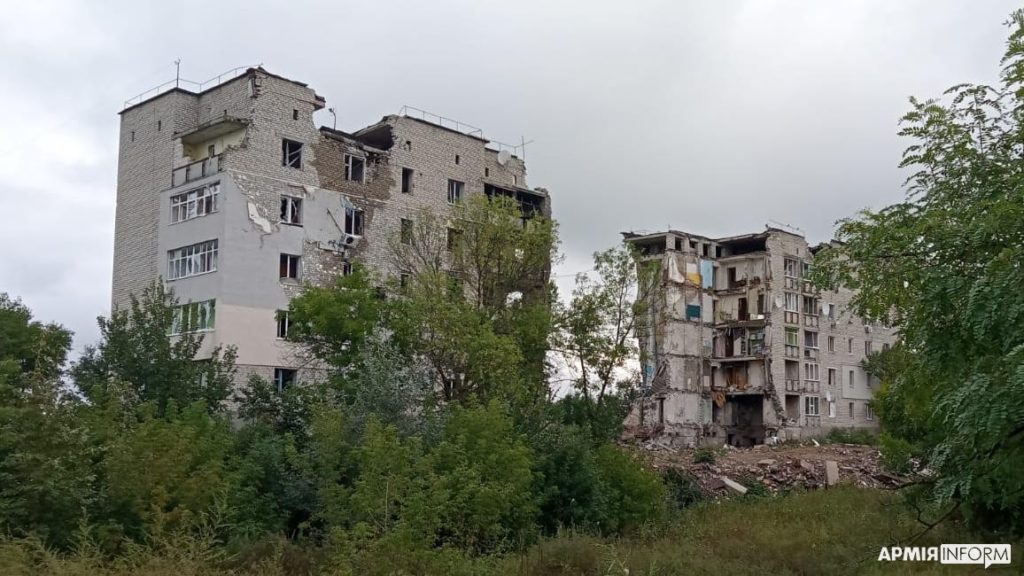
Among the dead are a family of eight: spouses Dmytro and Olena Stolpakovs, their children — eight-year-old Oleksandra and five-year-old Olesia, as well as Olena’s parents, her sister, and grandmother. It was possible to identify the dead after the liberation of Izium from the Russian occupation.

Kharkiv
On the evening of August 17, a Russian cruise missile “Kalibr” destroyed the dormitory building in Stara Saltivka. There were about 30 people in the building, including hard-of-hearing people who could not hear the air alarm, children, and pensioners. Seven were killed and 16 were injured.
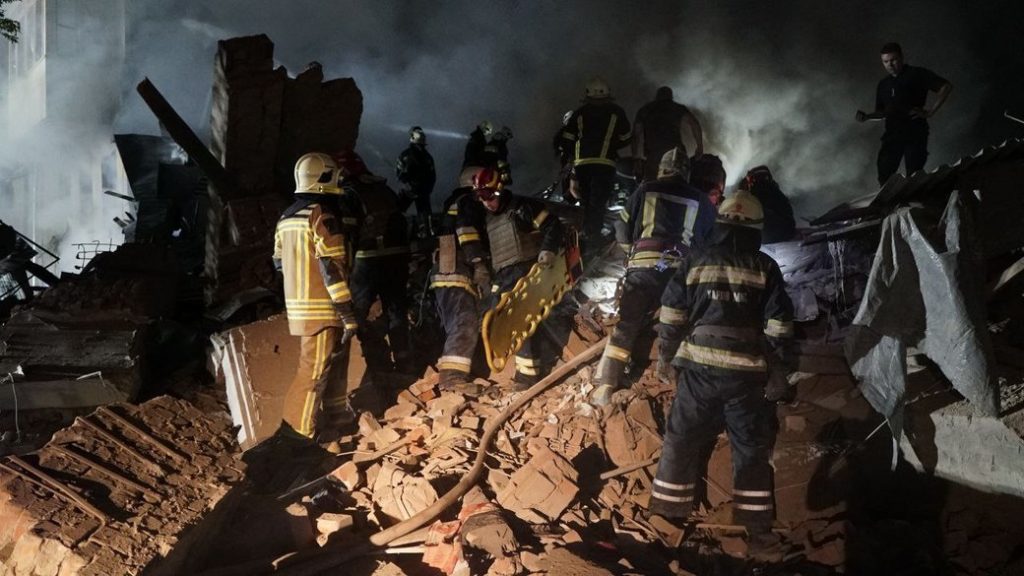
Zaporizhzhia
On the night of October 9, the Russians struck a massive blow against Zaporizhzhia, targeting the city with 12 missiles. Most of them hit multi-storey and private residential buildings. At least 17 people were killed. The bodies of 13 of them were recovered from under the rubble of a nine-storey building on Zestafonska Street.
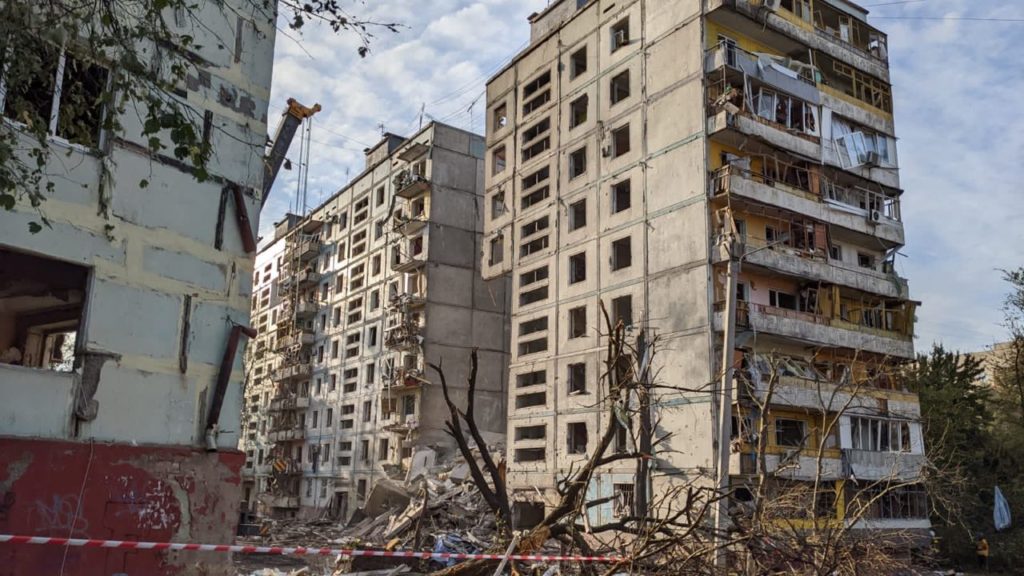
Odesa
On the afternoon of April 23, a Russian missile fired from the Caspian Sea hit an Odesa multi-storey building.
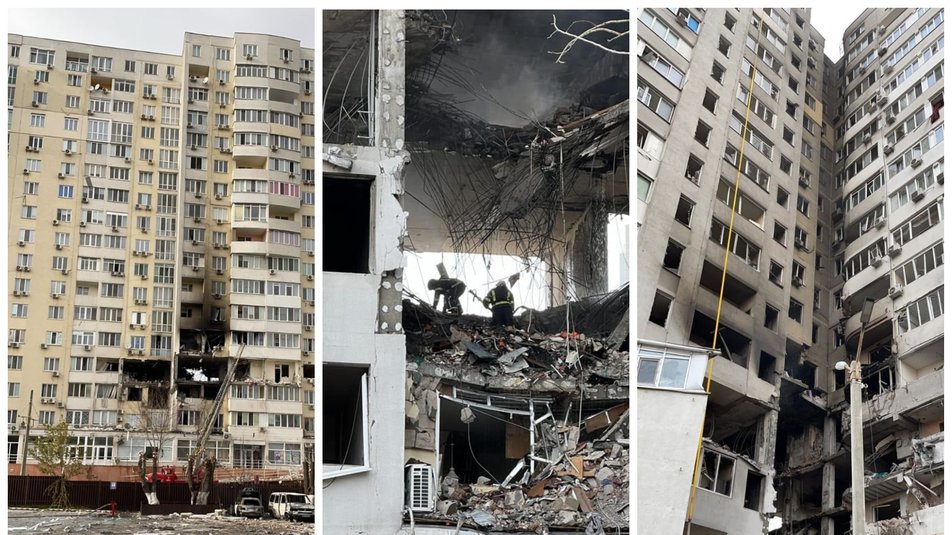
Eight people died; the youngest victim was less than four months old. Together with the girl, her 27-year-old mother Valeriia Hlodan and grandmother died. Valeriia’s husband returned home shortly after the attack and found the bodies of his family in the ruined flat.
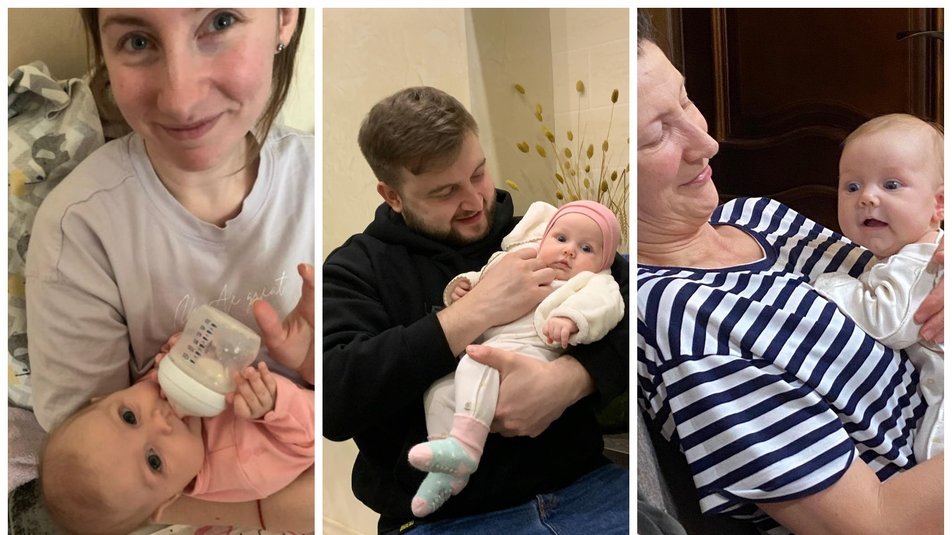
Mykolaiv
On the morning of June 29, a Russian rocket destroyed a five-storey building in a residential area of Lisky, where neither military nor industrial facilities were located. Eight people were killed and six were injured. Rescuers found the remains of the bodies of the dead at a distance of 100-200 meters from the epicentre of the explosion.

Putin’s regime and the Russian army, under the command of war criminals, deliberately chose terrorist tactics of war against the people of Ukraine. With strikes on civilian infrastructure and residential buildings, the invaders are trying to demoralize Ukrainians, break the will to fight, and force Kyiv to surrender in the “negotiations.”
However, the war with residential districts will not bring Putin victory. The barbaric attacks only strengthen the understanding of Ukrainians and their friends around the world that there is nothing to talk about with the Kremlin regime. There is no negotiating with terrorists. Only Russia’s military defeat can save human lives. Only an international tribunal for war criminals can restore justice in the name of innocent victims.
Dnipro
On January 14, Ukraine suffered another massive missile attack. Russians have been practising them since October 2022 with the aim of destroying critical infrastructure and terrorizing the civilian population. The nine-storey building on the Victory Embankment was hit by an X-22 anti-ship missile, completely destroying one of the entrances.
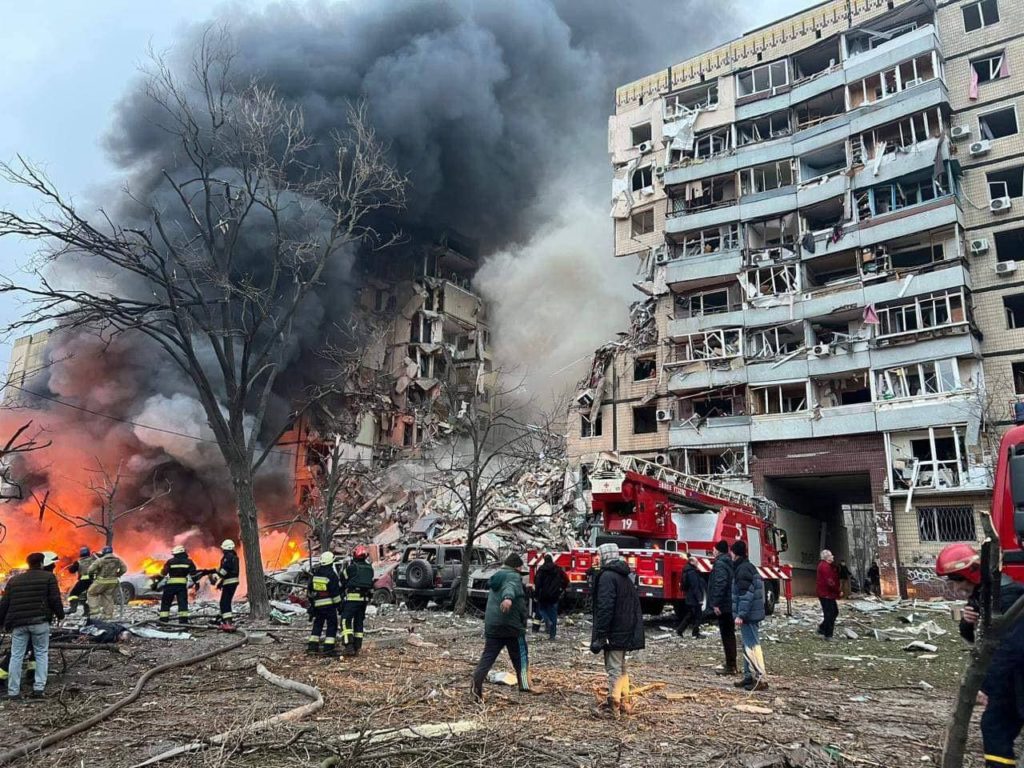
46 people died under the rubble, including six children. The youngest of them, Mykyta Zelenskyi, was supposed to turn 1 in two weeks.
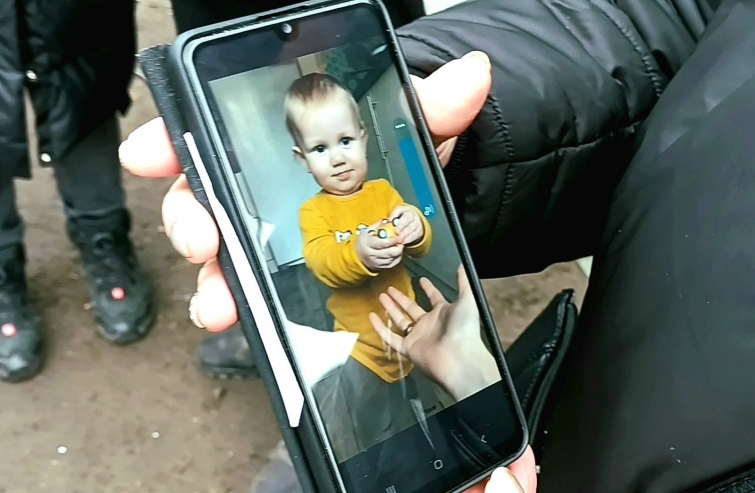
One and a half year old Makar Huz died together with his mother Anastasiia and father Dmytro.
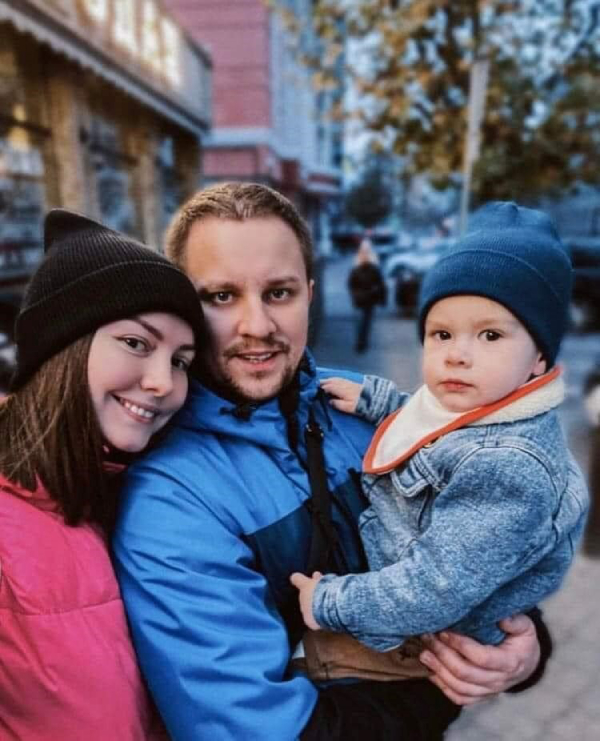
The Russian missile took the lives of the Frantseva sisters – 13-year-old Leila and three-year-old Mykhailyna, and their mother Oksana.
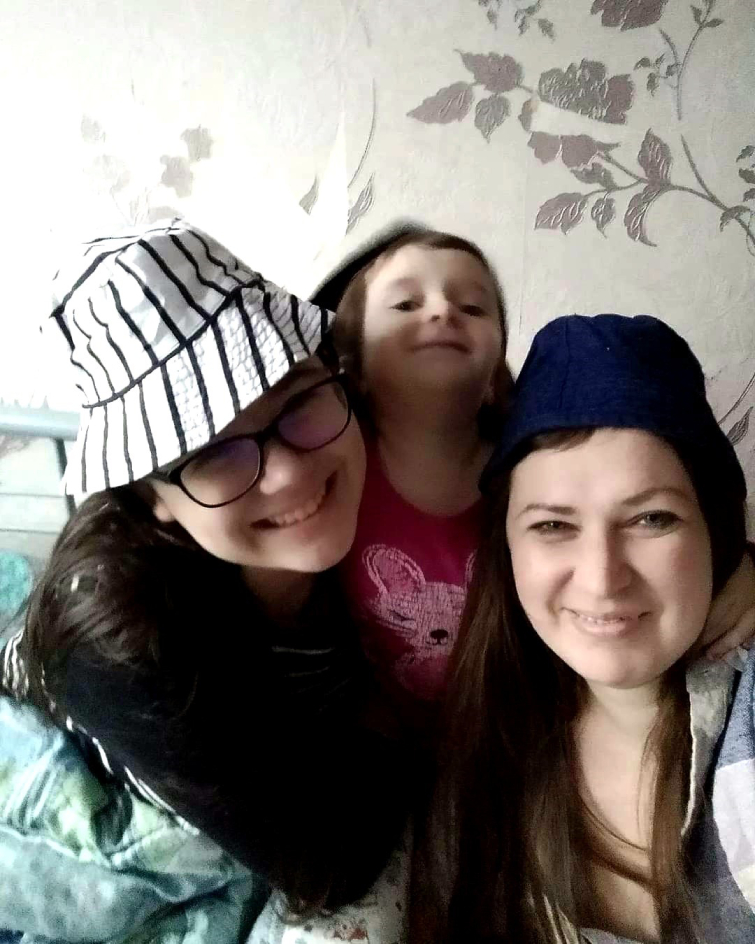
15-year-old Maria Lebid was an excellent student, engaged in music and ballroom dancing.

Freshman Maksym Bohutskyi was 17, he planned to become an IT specialist.

One of the symbols of the tragedy in Dnipro was a photo of a yellow kitchen from the flat of boxing coach Mykhailo Korenovskyi. Shortly before his death, he and his family celebrated the birthday of their youngest daughter here.
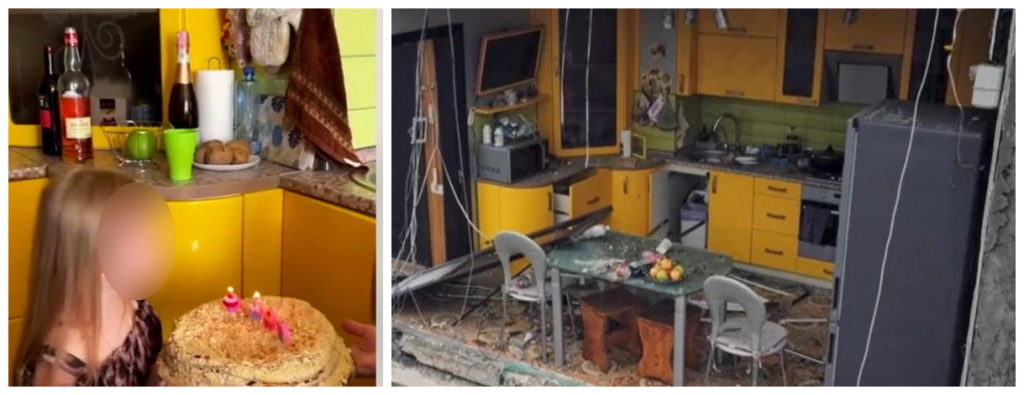
As a result of the missile strike, 80 people were injured, more than 400 lost their homes.
Kramatorsk (Donetsk Oblast)
On the evening of February 1, a Russian ballistic missile destroyed a residential building in the centre of Kramatorsk. At least three people were killed and 20 injured.

Centre for Strategic Communication and Information Security
If you have found a spelling error, please, notify us by selecting that text and pressing Ctrl+Enter.
